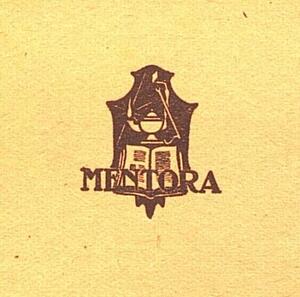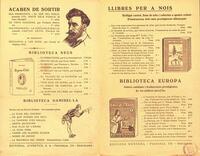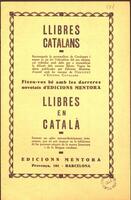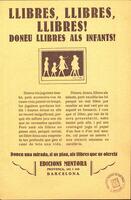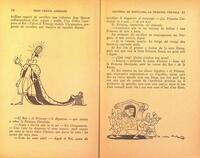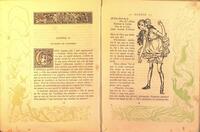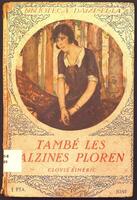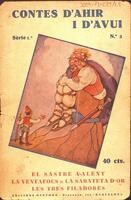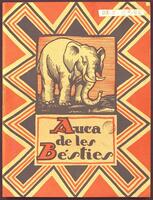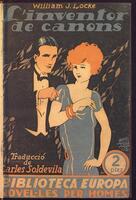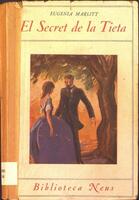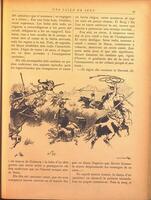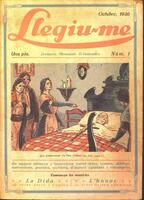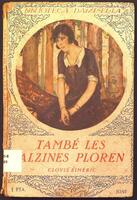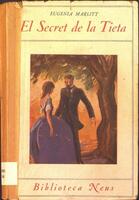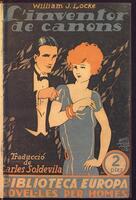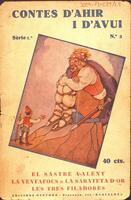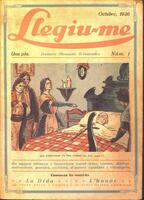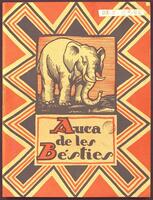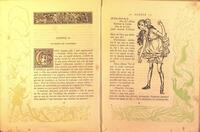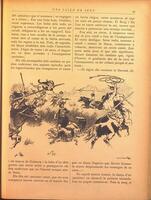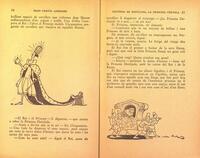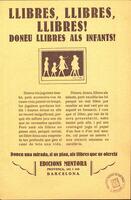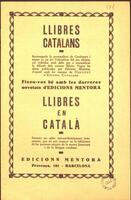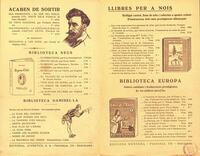Mentora
(Updated 08/10/2024)
Mentora, a publishing house with close ties to Juventud and the publisher Josep Zendrera, was founded in 1926. Its initial mission was to publish popular Catalan-language books and magazines for both adults and children. It published Catalan authors and translations, primary of English and French writers. Even though its publications were meant for a popular audience, they were quite painstakingly presented and translated.
+ informationSearch collections
Editorial Juventud collection in the Arxiu Nacional de Catalunya (National Archive of Catalonia)
Catalogue of publishers and booksellers from the Bergnes de las Casas collection (Biblioteca de Catalunya)
Catalogue of publishers of Catalonia until 1939 (Biblioteca de Catalunya)
Mònica Baró. Les Edicions infantils i juvenils de l'Editorial Joventut (1923-1969). Barcelona: Universitat de Barcelona, 2006. (Tesi doctoral).
Llanas, Manuel. L'edició a Catalunya. Segle XX (fins a 1939). Barcelona: Gremi d'Editors de Catalunya, 2005.
Ugarte i Ballester, Xus. “Esbós de les traduccions d’editorial Mentora i Llegiu-me: la literatura de consum”. Quaderns: revista de traducció, 8 (2002), p. 41-49.
Mentora
Description
Mentora, a publishing house with close ties to Juventud and the publisher Josep Zendrera, was founded in 1926. Its initial mission was to publish popular Catalan-language books and magazines for both adults and children. It published Catalan authors and translations, primary of English and French writers. Even though its publications were meant for a popular audience, they were quite painstakingly presented and translated.
Mentora, a publishing house with close ties to Juventud and the publisher Josep Zendrera, was founded in 1926. Its initial mission was to publish popular Catalan-language books and magazines for both adults and children. It published Catalan authors and translations, primary of English and French writers. Even though its publications were meant for a popular audience, they were quite painstakingly presented and translated.
The publishing house had two collections, Biblioteca Damisel·la and Biblioteca Neus, for romance novels primarily for women. Interestingly, it also created the Biblioteca Europa collection whose subtitle, “novel·les per homes” (novels for men) made its target audience clear.
Mentora also devoted a large portion of its publishing output to books for children and adolescents. The emblematic Contes d’Ahir i d’Avui collection contained traditional tales in the versions by the popular Brothers Grimm or Hans Christian Andersen, with adaptations by the folklorist Valeri Serra i Boldú. The imprint also assigned a collection exclusively to publishing the complete works of the poet and playwright Ignasi Iglésias. A few titles were issued in Spanish, including novels and books on politics and personal growth.
Mentora also published Llegiu-me: lectures mensuals il·lustrades, regarded as the first literature magazine in Catalan. Following its editorial line, it also included texts by Catalan authors and translations, primarily fiction with serial novels. The publication featured contributions by famous authors and illustrators.
In 1933, Mentora merged with Juventud for economic reasons, even though later some titles appeared with the Mentora printer’s mark.
Mentora
Authors
Mentora published both Catalan authors and translations, primarily of works by French and English authors. Despite the popular nature of its publications, it alternated erudite authors with serial novels. One collection was dedicated exclusively to the works of Clovis Eimeric, while another one featured the complete works of Ignasi Iglésias.
Andersen, H. C. (Hans Christian), 1805-1875
Blasco Ibáñez, Vicente, 1867-1928
Capdevila, Lluís, 1895-1980
Carroll, Lewis, 1832-1898
Eimeric, Clovis, 1882-1952
Grimm, Jacob, 1785-1863
Grimm, Wilhelm, 1786-1859
Iglésias, Ignasi, 1871-1928
Jordana, Cèsar August, 1893-1958
Locke, William John, 1863-1930
Marlitt, E. (Eugenie), 1825-1887
Pous i Pagès, J. (Josep), 1873-1952
Serra i Boldú, Valeri, 1875-1938
Soldevila, Carles, 1892-1967
Mentora
Illustrators and photographers
Mentora’s output, targeted at children and young readers, featured contributions from renowned illustrators. Jesús Sánchez Tena illustrated many of the titles in the Contes d’Ahir i d’Avui collection.
Mentora
Collections
Mentora devoted collections specifically to women, with the Biblioteca Damisel·la and Biblioteca Neus, but it also targeted male audiences with Biblioteca Europa, which was uniquely subtitled “novel·les per homes” (novels for men). Contes d’Ahir i d’Avui was meant for children, and one collection was dedicated exclusively to the complete works of Ignasi Iglésias.
Mentora
Magazines
Llegiu-me: lectures mensuals il·lustrades, published by Mentora, is regarded as the first literature magazine in Catalan. It included novels, stories, dialogues, fiction and poetry by Catalan and foreign authors. The first issue premiered with texts by authors like Àngel Guimerà, Víctor Català and Joan Puig i Ferrater, and with illustrations by Joan Junceda and J. Serra Massana. The translated texts only occasionally cited the name of the translator, such as in the cases of Josep Carner, Cèsar August Jordana and Carles Soldevila.
Mentora
Outstanding works
-
Cover from the Biblioteca Damisel·la collection, which exclusively published the novels of Clovis Eimeric, one of the pseudonyms used by writer and journalist Lluís Almerich i Sellarès.
Eimeric, Clovis. També les alzines ploren: novel·la original. Barcelona: Mentora, [192-?]
-
Cover from the de Biblioteca Neus collection, which was primarily targeted at women and featured romance novels.
Marlitt, Eugenia. El secret de la tieta: novel·la escrita en alemany. Barcelona: Mentora, [193-?]
-
Cover from L’inventor de canons by William J. Locke with a translation by Carles Soldevila, part of the Biblioteca Europa collection targeted at men, as made clear by its subtitle, "novel·les per homes" (novels for men).
Locke, William J. L’inventor de canons: novel·la. Barcelona: Mentora, [19--].
-
Cover of El sastre valent, and other stories by the Brothers Grimm in the adaptation by Valeri Serra i Boldú, with illustrations by Jesús Sánchez Tena, part of the Contes d’Ahir i d’Avui collection.
Serra i Boldú, Valeri. El sastre valent; La Ventafocs o la sabateta d’or; i Les tres filadores. Barcelona: Mentora, 1931.
-
Cover of the first issue of Llegiu-me, published by Mentora, regarded as the first literature magazine in Catalan. It included novels, stories, dialogues, fiction and poetry by Catalan and foreign authors.
Llegiu-me: lectures mensuals il·lustrades. Barcelona: Mentora, 1926-[1928].
-
Cover of the book Auca de les bèsties illustrated by Lluís Macaya, with a text by Eladi Homs.
Auca de les bèsties. Barcelona: Mentora, [19--?].
-
Illustrations by Lola Anglada extracted from Alícia en terra de meravelles (Alice in Wonderland), in the translation by Josep Carner, who was the first to translate this Lewis Carroll book into Catalan.
Carroll, Lewis. Alícia en terra de meravelles. Barcelona: Mentora, [1927].
-
Illustration by Joan Junceda extracted from Lau, o, Les aventures d’un aprenent de pilot.
Soldevila, Carles. Lau, o, Les aventures d’un aprenent de pilot. Barcelona: Mentora, [1926].
-
Illustrations by Jesús Sánchez Tena extracted from Història de Desitjada, la princesa cérvola by Hans Christian Andersen, in the adaptation by Lluís Capdevila, part of the Contes d’Ahir i d’Avui collection.
Capdevila, Lluís. Història de Desitjada, la princesa cérvola. Barcelona: Mentora, 1935.
- Catalogues from the publishing house in different time periods.
